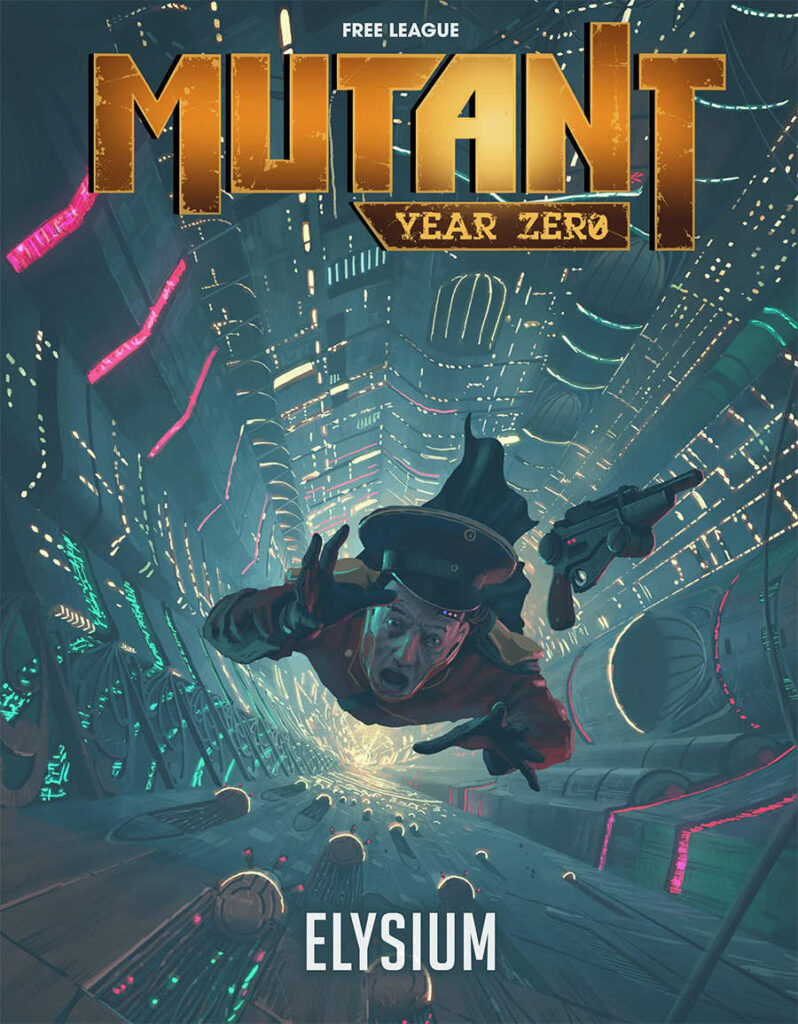I started to feel that I didn’t know roleplaying games well enough so I came up with the plan to read a roleplaying game corebook for every year they have been published. Selection criteria is whatever I find interesting.

Mutant: Year Zero has an interesting publishing plan for its extensions. The game is set in a postapocalyptic world where the civilization of the past is just a fading memory. It’s inhabitants look towards the future, to the task of making their communities in the new world sustainable. This is the Year Zero of the title, the first year of a new existence.
The three major expansions, Genlab Alpha, Mechatron and Elysium all feature different, distinct playable character types emerging from the rubble of the old world, ready to take their place in the Zone. Each also features the complete Mutant game mechanics, meaning they can also played as standalone roleplaying games. In each, there’s a complete campaign tightly interconnected with the playable characters and their circumstances. In this sense, they’re very thoroughly designed playable packages where everything points towards a clearly defined experience.
Each expansion is sort of like an origin story, the explanation why a specific community appears in the Zone. Each points to the Year Zero of the core game’s title.
In Elysium, the new character types are the humans. They live in an underground enclave called Elysium, safe from the ravages of the apocalypse for all these years. They have a stifling class society whose leaders do their best to pretend that this is all there is and a better life is most certainly not possible.
The characters are judicators, essentially elite cops who’s job is to respond to various crises in the decaying enclave. The twist is that these crises are usually instigated by the four ruling Houses, and the players also decide on the moves they make. Thus, a character belonging to a particular House may find themselves pretending to fix a crisis their own people caused.
The characters are not the good guys and upholding the status quo is not the way the game conceptualizes their activities. Rather, they see more than most enclave residents and have an opportunity to make their own moral choices.
As is true of all Fria ligan games and releases, Elysium feels like it was written and designed to be read and played. This sounds like it should be obviously the case for all roleplaying game releases, but after reading so many, I’ve come to appreciate when someone actually makes it a priority.